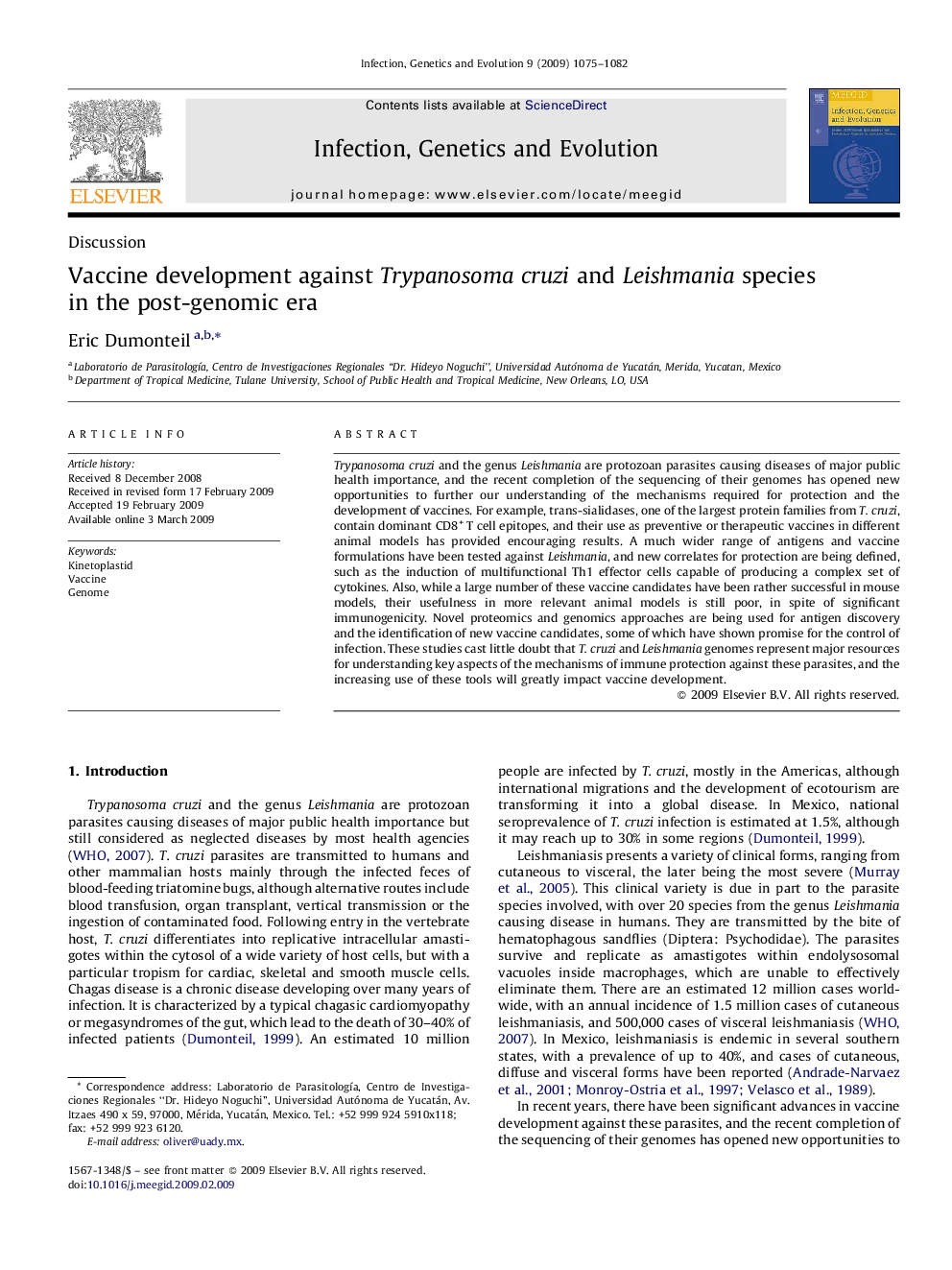| Article ID | Journal | Published Year | Pages | File Type |
|---|---|---|---|---|
| 2823497 | Infection, Genetics and Evolution | 2009 | 8 Pages |
Trypanosoma cruzi and the genus Leishmania are protozoan parasites causing diseases of major public health importance, and the recent completion of the sequencing of their genomes has opened new opportunities to further our understanding of the mechanisms required for protection and the development of vaccines. For example, trans-sialidases, one of the largest protein families from T. cruzi, contain dominant CD8+ T cell epitopes, and their use as preventive or therapeutic vaccines in different animal models has provided encouraging results. A much wider range of antigens and vaccine formulations have been tested against Leishmania, and new correlates for protection are being defined, such as the induction of multifunctional Th1 effector cells capable of producing a complex set of cytokines. Also, while a large number of these vaccine candidates have been rather successful in mouse models, their usefulness in more relevant animal models is still poor, in spite of significant immunogenicity. Novel proteomics and genomics approaches are being used for antigen discovery and the identification of new vaccine candidates, some of which have shown promise for the control of infection. These studies cast little doubt that T. cruzi and Leishmania genomes represent major resources for understanding key aspects of the mechanisms of immune protection against these parasites, and the increasing use of these tools will greatly impact vaccine development.
